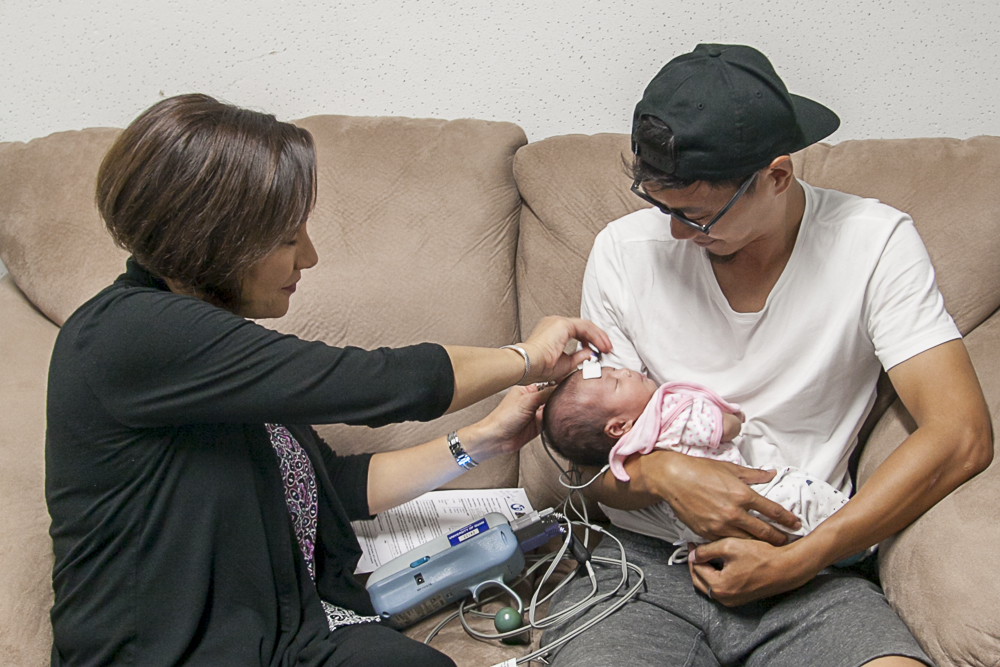
If a baby does not pass the newborn hearing screening at the hospital or birthing site, it is very important to return for a follow-up hearing screening. Not passing the hearing screening does not mean your baby has a hearing loss, but follow-up screening is a step closer to identifying if a baby has a hearing loss. Some babies are born with certain high risk factors for developing a hearing loss. Your baby may pass the hearing screening before discharge from the hospital or birthing site, but if your baby was born with high risk factors, it is important for your baby to get a diagnostic audiological evaluation (DAE) by 6 months of age or sooner, if recommended by your doctor.
Procedure for Initial Newborn Hearing Screening
Step 1
Newborn hearing screening is conducted using a special equipment called Otoacoustic Emissions (OAE). A sensitive microphone is placed in baby’s ear canal while baby is sleeping or very quiet. The equipment records the ear’s response to sounds. This procedure is quick,easy, and does not hurt the baby. No further testing is needed if the baby passes the OAE hearing screen.
Step 2
If baby does not pass the OAE Screening, An Automated Auditory Brainstem Response (AABR) Screening Equipment is used. Sensors are placed on the baby’s forehead, back of the neck, and shoulder. Earcups are used to deliver sounds to the baby’s ears. The AABR device records the brain’s response to sound. No further testing is needed if the baby passes the AABR hearing screen.
Step 3
If a baby does not pass the AABR, the child will receive a referral to Guam Early Intervention System, and is given an outpatient hearing re-screen appointment. It is important that your child is seen in a timely manner to determine if more testing is necessary.
Follow-up Screenings: Importance of Follow-Up Hearing Screening
Newborn hearing screening is a procedure conducted before an infant is discharged from the hospital or birthing center. This is a standard of care for all babies born on Guam. Newborn hearing screening identifies if a baby might have a hearing loss.
Some babies are born with certain high risk factors for developing a hearing loss. Your baby may pass the hearing screening before discharge from the hospital or birthing site, but if your baby was born with high risk factors, it is important to bring him back for a follow-up testing by 6 months of age.